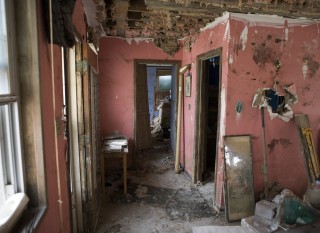Climate Change is Spurring New Policy Precedents

Climate change is here to stay, and it is hitting some states harder than others. Louisiana is particularly hard hit. In fact, this boggy, coastal state is one of the hardest hit places in the entire world.
Since 1930, this small state has lost landmass the size of Delaware. A combination of rising sea level and worsening storms is sweeping so much land into the ocean every year that it is the equivalent of losing Manhattan.
Caught in the crossfire is a small island, called the Isle de Jean Charles. This narrow strip of land lies just off the coast of Louisiana. It is also the traditional lands of a group of Native Americans known as the Band of Biloxi-Chitimacha-Choctaw Indians.
In just a few short decades, the island has lost over 90 percent of its landmass. Channels cut by companies to assist in oil and logging operations made the island more vulnerable to the effects of flooding and the assault of hurricanes and other storms. The result has been massive subsidence, saltwater intrusion, and land simply disappearing beneath the sea as sea levels rise due to global warming.
Starting in 2002, there have been repeated attempts to relocate and resettle the residents. These efforts have run up against obstacles in the form of political problems, logistical challenges and even sentiment: Even to this day, many of the natives simply do not want to go.
However, a new government grant from the Department of Housing and Urban Development is intended to resolve this issue. This potentially precedent setting grant is part of a $1 billion package of grants aimed at helping communities in 13 states adapt to climate change.
Historically, government grants have typically either helped people rebuild after a natural disaster or tried to stave off negative impacts. Unsurprisingly, most of these grants are for familiar projects, such as building dams, levees, and drainage systems. But one is for resettling the people of the Isle de Jean Charles.
Not only has most of the island disappeared, what little is left no longer supports much life. Fruit trees have been killed by the rising salt water and there are few animals left to hunt. Most of the housing has also been damaged or destroyed.
Thus, they are being granted $48 million to relocate the entire community by 2022. What little is left of their heritage and culture must go elsewhere if it is to survive at all. Although it is heartbreaking to consider leaving behind their homeland, at the rate things are going, there will soon be nothing left.
Although this is a first, it is not expected to be the last time this happens. Climate change is worsening. Thus, this may turn into a test case for how to cope effectively when land sometimes completely disappears.
South Florida is an area likely to be particularly interested in the outcome of this experiment. Millions of people who live there are at risk of losing their land to rising sea levels.









